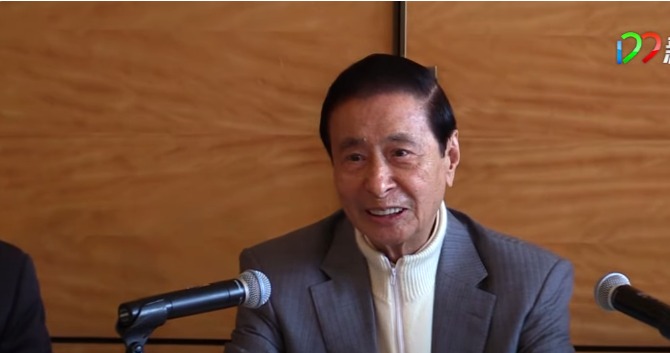Often referred to as Hong Kong’s second-richest a billionaire, Lee Shau Kee left behind a vast legacy that extended into the fields of philanthropy, real estate, and strategic investing. His staggering net worth of $33 billion at the time of his death in March 2025 is a prime example of both wealth and the blueprint for economic change. Born in Shunde, Guangdong, China, in 1928, Lee’s rise to the top of Hong Kong’s business world was distinguished by his keen grasp of market dynamics and his remarkable ability to adjust to changing economic conditions.
Being the owner and chief executive of Henderson Land Growth and Development, one of Hong Kong’s most significant real estate companies, was a major factor in Lee’s decades-long empire-building. His impressive 72% ownership stake in the company was part of his portfolio, which guaranteed him a major say in the city’s real estate market. In addition, Lee broadened his investments into other significant industries, owning shares in Sun Hung Kai Companies and the Sunlight Real Estate Investment Trust, to mention a couple. Lee was distinguished by his remarkable ability to transform what many would consider obstacles into opportunities, not just by the amassing of wealth.
| Personal Information | Professional Details | Financial Overview |
|---|---|---|
| Full Name: Lee Shau Kee | Position: Founder & Chairman, Henderson Land Development | Net Worth: $33 Billion |
| Born: 1928, Shunde, China | Industry: Real Estate, Investment | Date of Death: March 17, 2025 |
| Spouse: Divorced (Lau Wai Kuen) | Key Holdings: 72% Henderson Land Development, 2% Sun Hung Kai Properties, 23% Sunlight Real Estate Investment Trust | |
| Children: Five children, several grandchildren | Other Roles: Chairman, Hong Kong & China Gas Co. Chairman, Miramar Hotel & Investment | |
| Philanthropy: Founder of HKICC Lee Shau Kee School of Creativity | Reputation: Second-richest man in Hong Kong, Major influence in local property markets | |
| Legacy: Major contributor to Hong Kong’s post-war economic rise | Nicknames: “Uncle Four”, “Asia’s Master of Stock”, “Hong Kong’s Buffett” |
His career included a particularly telling period in the tumultuous years preceding Hong Kong’s 1997 transfer to China. Lee’s keen intuition and strategic vision allowed him to make investments that ultimately yielded substantial returns, despite the fact that many were terrified of the possible dangers and uncertainties of the political shift. In addition to solidifying his reputation as a shrewd businessman, his ability to weather economic and political storms, especially during this time, also demonstrated his visionary understanding of the global changes that were altering the market for real estate.

Even though Lee Shau Kee’s wealth was frequently praised, what really set him apart was the way he approached both life and business. He avoided the usual media frenzy that frequently accompanies billionaires, leading an incredibly private life despite his enormous wealth. He gained respect in the company community for prioritizing long-term investments over short-term profits; many dubbed him Hong Kong’s version of Warren Buffett. His business methods were characterized by a patient approach, as he preferred to accumulate wealth over pursuing immediate satisfaction.
Lee stood out for his adaptability and fortitude in the face of shifting international circumstances. During the 1970s, when Hong Kong’s real estate marketplace was expanding quickly, Lee saw the opportunity and took decisive action. He laid the groundwork for his real estate empire by seizing the chance to buy land when prices were still low. His diversification strategy, which included sectors like energy and transportation in addition to real estate development, was a particularly good example of his flexibility.
Lee’s success was characterized by his significant influence on Hong Kong society as well as his wealth. His charitable endeavors, especially in the field of education, were among his most noteworthy contributions. His dedication to encouraging creativity and innovation in the next generation was demonstrated by his donation of more than 20 million Hong Kong dollars to create the HKICC Lee Shau Kee School of Creativity. His legacy will live on in this school, which is devoted to fostering young minds’ creative abilities.
Throughout his life, Lee Shau Kee was active in a number of charitable endeavors in addition to his work in education. His support of numerous organizations and causes demonstrated his conviction that it was critical to give back to the society that had helped him succeed. His business philosophy, which viewed the greater good in society as essential to his own success, was reflected in his philanthropy.
Lee’s impact extended beyond Hong Kong’s boundaries. His influence on the world of business expanded along with his wealth. He came to represent the prosperous businessman who started from scratch and served as an example of what can be achieved with hard work, astute financial decisions, and a sharp sense of timing. In addition to his $33 billion fortune, he will always be known for the calculated choices that made him one of the most significant individuals in Hong Kong’s economic history.
The empire that Lee Shau Kee established is still very much in existence despite his passing. His businesses are still among the most influential in Hong Kong, having a significant impact on the real estate industry and other sectors. His legacy will be carried on by his children and grandchildren, who will inherit his business sense. For many years to come, Lee Shau Kee’s name will be associated with Hong Kong’s success story, despite the fact that the landscape may shift and new billionaires may emerge.


